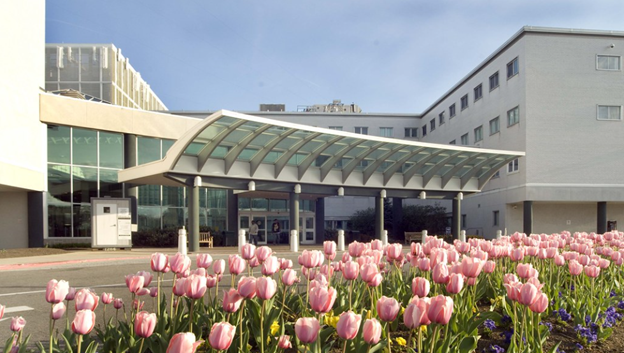Understanding Addiction and Treatment Needs
Addiction is a complex and multifaceted condition that impacts individuals and their relationships on multiple levels. It involves a range of psychological, physical, and emotional dimensions, making it essential to understand its various aspects to provide effective treatment. Addiction often manifests as a compulsive need to use substances despite negative consequences, and its effects can be far-reaching, influencing not only the individual but also their relationships and overall quality of life.
Psychological, Physical, and Emotional Dimensions
Understanding addiction requires recognizing its psychological, physical, and emotional components. Psychologically, addiction can stem from underlying mental health issues such as anxiety, depression, or trauma. Individuals may use substances as a means of coping with or escaping from emotional pain or distress. Physically, addiction alters brain chemistry and creates a dependence on substances, leading to withdrawal symptoms and cravings when not using. Emotionally, addiction can lead to a range of issues including relationship strain, self-esteem problems, and emotional instability. Each of these dimensions needs to be addressed in treatment to ensure a comprehensive approach to recovery.
Varied Treatment Needs
Treatment needs for addiction vary significantly depending on several factors, including the severity of the addiction, any co-occurring mental health conditions, and the individual’s or couple’s unique circumstances. For some, treatment may involve detoxification and medical management to handle withdrawal symptoms and physical dependence. For others, therapy and counseling may be the primary focus, aimed at addressing psychological issues and developing coping strategies. In cases where addiction affects relationships, couples therapy may be necessary to address interpersonal dynamics and strengthen relational support systems. Personalized treatment plans are crucial for effectively managing addiction, as they allow for tailored interventions that address the specific needs of each individual or couple.
Comprehensive Treatment Options in Arlington
In Arlington, treatment options are designed to address the diverse needs of individuals and couples comprehensively. Programs often include a combination of medical detoxification, individual and group therapy, family counseling, and holistic approaches such as mindfulness and yoga. Personalized treatment plans are essential for effective recovery, as they ensure that the interventions provided align with the individual’s or couple’s specific needs and goals. By focusing on both individual and relational needs, treatment programs aim to foster long-term recovery and overall well-being.
The Role of Couples Rehabs
Couples Rehabs plays a critical role in providing effective and supportive treatment by addressing the unique needs of couples dealing with addiction. These programs offer specialized services that cater to both partners, focusing on relational dynamics and individual issues. Treatment may include joint counseling sessions to improve communication, rebuild trust, and address any relational stressors exacerbated by addiction. By providing a supportive environment for both partners, Couples Rehabs helps strengthen their relationship while facilitating individual recovery. This holistic approach not only targets the addiction itself but also supports the couple’s overall relational health, contributing to a more sustainable and fulfilling recovery journey.
Personalized Treatment
Personalized treatment is a cornerstone of effective addiction recovery. This approach involves tailoring treatment plans to meet the specific needs of the individual or couple. At Couples Rehabs, personalized treatment includes a thorough assessment of the client’s history, addiction severity, and personal goals.
Customized treatment plans may incorporate a mix of therapies, support services, and recovery strategies designed to address unique challenges and promote healing. Personalization enhances the effectiveness of treatment by aligning interventions with the client’s specific needs and preferences.
Inpatient Rehab Facilities in Arlington
Inpatient rehab facilities in Arlington offer a structured and immersive environment designed to support individuals and couples in their recovery journey from addiction. These facilities provide comprehensive, round-the-clock care and supervision, creating a secure and supportive space for intensive treatment. By immersing individuals in a dedicated treatment setting, inpatient rehab facilities address the complexities of addiction with a focused and holistic approach.
Comprehensive Care and Supervision
One of the primary benefits of inpatient rehab facilities is the availability of 24/7 care and supervision. This constant support is essential for individuals struggling with severe addiction or those at risk of relapse. The structured environment of inpatient rehab ensures that patients receive continuous monitoring, which helps manage withdrawal symptoms and medical complications safely. This level of care also provides a stable and distraction-free setting, allowing individuals to concentrate fully on their recovery without the stresses and triggers of their everyday lives. Inpatient facilities typically employ a team of medical professionals, including doctors, nurses, and addiction specialists, who work together to provide tailored treatment plans and address any immediate needs that arise during the recovery process.
Outpatient Rehab Programs in Arlington
Outpatient rehab programs in Arlington provide a flexible and accommodating option for individuals and couples who need to balance their addiction treatment with other responsibilities, such as work or family commitments. These programs offer a structured approach to recovery while allowing clients to continue living at home, making it easier to integrate treatment into daily life.
Flexibility and Accessibility
One of the key advantages of outpatient rehab programs is their flexibility. Unlike inpatient rehab, which requires individuals to reside at the facility, outpatient programs allow clients to attend therapy and support sessions while maintaining their regular routines. This flexibility is particularly beneficial for those who have significant work or family obligations and may find it challenging to commit to a residential treatment setting. Outpatient programs typically offer various scheduling options, including evening and weekend sessions, to accommodate different schedules. This accessibility helps clients manage their recovery alongside their daily responsibilities, reducing the risk of treatment disruption and increasing the likelihood of long-term success.
Continuous Support and Aftercare
Outpatient rehab programs often include continuous support and aftercare services to help clients maintain their recovery and prevent relapse. As clients progress through their treatment, they may receive referrals to ongoing support groups, counseling services, and community resources. Aftercare services are essential for providing ongoing support and addressing any challenges that arise after formal treatment. These services help clients build a strong support network, set and achieve recovery goals, and navigate the transition back into their daily lives. By offering continued support and resources, outpatient rehab programs aim to foster long-term recovery and ensure that clients have the tools and strategies needed to sustain their progress.

Specialized Treatment Centers in Arlington
Specialized treatment centers in Arlington cater to individuals and couples with unique or complex addiction needs by focusing on specific aspects of addiction and related issues. These centers provide targeted interventions and therapies designed to address particular challenges, such as dual diagnosis (co-occurring mental health disorders), trauma, and specific substance dependencies. By offering tailored care, specialized treatment centers enhance the likelihood of successful outcomes for clients facing these unique challenges.
Focus on Dual Diagnosis
Dual diagnosis treatment centers address the complex interplay between addiction and co-occurring mental health disorders, such as anxiety, depression, or bipolar disorder. Individuals with dual diagnosis require integrated care that simultaneously treats both their addiction and mental health issues. Specialized centers in Arlington offer comprehensive assessments to identify and diagnose co-occurring conditions, followed by personalized treatment plans that include both substance abuse therapy and mental health support. This integrated approach helps clients manage their mental health symptoms while working on their addiction recovery, leading to more effective and sustainable outcomes. By addressing both aspects of the diagnosis, these centers aim to reduce the risk of relapse and support overall well-being.
Substance-Specific Programs
Some specialized treatment centers in Arlington focus on specific substance dependencies, such as opioids, alcohol, or stimulants. These centers offer targeted interventions and evidence-based therapies tailored to the unique challenges associated with each substance. For example, opioid-specific programs may include medication-assisted treatment (MAT) with medications like methadone or buprenorphine, along with specialized counseling and support services. Alcohol-focused programs might incorporate strategies for managing alcohol withdrawal, preventing relapse, and addressing related health issues. By concentrating on the specific substance involved, these centers provide specialized care that addresses the particular needs and risks associated with different types of addiction, improving the effectiveness of treatment and supporting a successful recovery journey.
Evidence-Based Therapies in Arlington
Evidence-based therapies form the cornerstone of effective addiction treatment, as they are grounded in scientific research and have been proven to be effective in addressing substance use disorders. In Arlington, these therapies are integral to many treatment programs, including those provided by Couples Rehabs. By utilizing approaches that have demonstrated efficacy through rigorous research, these programs ensure that clients receive high-quality care that is both reliable and effective.
Cognitive Behavioral Therapy (CBT)
Cognitive Behavioral Therapy (CBT) is one of the most widely used evidence-based therapies for treating addiction. CBT focuses on identifying and changing negative thought patterns and behaviors that contribute to substance abuse. By helping clients recognize and alter these detrimental thought processes, CBT equips them with practical skills to manage triggers and stressors without resorting to substance use. This therapy also emphasizes the development of coping strategies and problem-solving skills, which are essential for maintaining sobriety. In Arlington, CBT is often integrated into treatment plans to address the underlying cognitive and emotional factors driving addiction, providing clients with tools to foster lasting recovery.
Dialectical Behavior Therapy (DBT)
Dialectical Behavior Therapy (DBT) is another evidence-based approach that is particularly effective for individuals with co-occurring mental health disorders or those who struggle with emotional regulation. DBT combines cognitive-behavioral techniques with mindfulness strategies to help clients manage intense emotions, improve interpersonal relationships, and enhance overall emotional resilience. This therapy is especially useful for individuals who experience difficulty with impulse control, self-harm, or emotional instability. By incorporating mindfulness practices and teaching skills for managing distress, DBT supports clients in developing a balanced and healthy approach to recovery. In Arlington, DBT is utilized to address the complex interplay between addiction and emotional challenges, offering a comprehensive approach to treatment.
Motivational Interviewing (MI)
Motivational Interviewing (MI) is a client-centered, evidence-based therapy that focuses on enhancing an individual’s motivation to change. MI is based on the principle that clients are more likely to engage in and sustain recovery when they are intrinsically motivated rather than feeling pressured or coerced. The therapy involves collaborative conversations that help clients explore their ambivalence about change, identify personal goals, and develop a commitment to making positive changes. MI techniques are designed to evoke and strengthen clients’ own motivations and reasons for recovery, rather than imposing external pressures. In Arlington, MI is used to support individuals in clarifying their values, setting achievable goals, and fostering a sense of ownership over their recovery journey.
Holistic and Alternative Therapies
Holistic and alternative therapies complement traditional addiction treatments by addressing the whole person—mind, body, and spirit. In Arlington, these approaches are increasingly integrated into treatment plans to promote overall well-being and support comprehensive recovery. By focusing on various aspects of an individual’s health and personal growth, holistic therapies offer additional tools and strategies for managing stress, improving mental clarity, and enhancing emotional resilience.
Yoga and Meditation
Yoga and meditation are integral components of holistic addiction treatment, offering significant benefits for both mental and physical health. Yoga combines physical postures, breathing exercises, and mindfulness to improve flexibility, reduce stress, and foster a sense of inner peace. Through regular practice, individuals can develop greater self-awareness, emotional balance, and resilience, which are crucial for maintaining sobriety. Meditation complements yoga by providing techniques to quiet the mind, focus attention, and manage cravings. In Arlington, these practices are incorporated into treatment plans to help clients cultivate mindfulness, manage stress, and enhance their overall sense of well-being.
Acupuncture and Nutritional Counseling
Acupuncture is another alternative therapy used in addiction treatment to support recovery and improve physical health. This traditional Chinese medicine practice involves inserting thin needles into specific points on the body to stimulate energy flow and promote healing. Acupuncture can help alleviate withdrawal symptoms, reduce cravings, and improve overall wellness. Nutritional counseling is also a key aspect of holistic treatment, addressing the importance of a balanced diet in supporting recovery. Proper nutrition helps to restore physical health, boost energy levels, and improve mood, all of which contribute to a more successful recovery process. In Arlington, these therapies are used to enhance the physical and emotional aspects of treatment, providing clients with additional tools for managing their addiction and supporting long-term recovery.
Integrating Holistic Therapies into Treatment Plans
The integration of holistic therapies into addiction treatment plans in Arlington provides a comprehensive approach that addresses multiple dimensions of health. By incorporating practices such as yoga, meditation, acupuncture, and nutritional counseling, treatment programs offer clients a well-rounded approach to recovery that supports their overall well-being. These therapies complement traditional methods like counseling and medication, creating a more balanced and individualized treatment experience. Holistic approaches help clients develop coping skills, manage stress, and foster personal growth, all of which are essential for maintaining sobriety and achieving long-term success.

Family Involvement and Support in Addiction Recovery
Family involvement plays a crucial role in the addiction recovery process, especially when addressing relational dynamics within treatment. In Arlington, Couples Rehabs and similar facilities emphasize the importance of including family members in therapy and treatment planning to ensure a holistic and supportive approach to recovery. By engaging family members in the treatment process, these programs help create a more comprehensive support system that enhances the chances of successful and sustained recovery.
The Role of Family Therapy
Family therapy is a key component of addiction treatment that focuses on addressing relational issues, improving communication, and strengthening family bonds. During family therapy sessions, family members and the individual or couple in recovery come together to explore and resolve conflicts, understand each other’s perspectives, and develop healthier ways of interacting. This therapeutic approach aims to rebuild trust, enhance mutual support, and create a positive environment conducive to recovery. By addressing underlying family dynamics and fostering open communication, family therapy helps to reduce relapse risk and supports the overall healing process.
Enhancing Communication and Support
Effective communication is essential for building a supportive network around the individual or couple in recovery. Family involvement in treatment helps to improve communication skills, which are crucial for resolving conflicts and expressing emotions constructively. Programs that include family members in therapy provide opportunities for everyone involved to voice their concerns, share their experiences, and work together toward common goals. This collaborative approach not only enhances the support system but also empowers family members to play an active role in the recovery journey. By fostering open dialogue and mutual understanding, family involvement strengthens the overall support network and contributes to a more successful recovery process.
Building a Cohesive Support System
A cohesive support system is vital for maintaining long-term recovery and preventing relapse. Engaging family members in the treatment process helps to build a strong and supportive network that can provide encouragement, accountability, and practical assistance. In Arlington, treatment programs that prioritize family involvement work to create an environment where family members feel invested in the recovery process and equipped to support their loved one effectively. This collaborative effort ensures that the individual or couple has access to a reliable and understanding support system, which is essential for navigating the challenges of recovery and achieving lasting sobriety.
Relapse Prevention
Relapse prevention is a critical component of addiction treatment, focusing on strategies and tools to help individuals maintain their sobriety and avoid returning to substance use. Effective relapse prevention involves identifying triggers, developing coping mechanisms, and building a strong support system. In Arlington, relapse prevention is integrated into treatment programs to provide clients with the skills and support they need for long-term recovery.
Identifying Triggers and High-Risk Situations
Understanding and identifying triggers is a fundamental aspect of relapse prevention. Triggers are situations, emotions, or environments that can prompt cravings or lead to a relapse. Common triggers include stress, social pressures, or exposure to substances or places associated with past use. In Arlington, relapse prevention strategies begin with helping clients recognize their personal triggers and high-risk situations. By acknowledging these triggers, individuals can develop proactive strategies to manage or avoid them. This process involves assessing past experiences and current challenges to create a comprehensive plan for addressing potential risks.
Developing Coping Mechanisms
Once triggers are identified, developing effective coping mechanisms is essential for managing cravings and preventing relapse. Coping strategies may include techniques such as mindfulness, stress management, and problem-solving skills. Mindfulness practices, such as meditation and deep breathing, can help individuals stay present and reduce the intensity of cravings. Stress management techniques, including exercise and healthy lifestyle choices, contribute to overall well-being and resilience. In Arlington, relapse prevention programs often incorporate these coping mechanisms into treatment plans, providing clients with practical tools to handle challenging situations and maintain their recovery.
Building a Strong Support System
A strong support system is crucial for successful relapse prevention. Support networks can include family, friends, support groups, and addiction counselors. Engaging with a supportive community provides encouragement, accountability, and a sense of connection. Support groups, such as 12-step programs or other peer-based groups, offer opportunities for sharing experiences, receiving advice, and gaining motivation from others who have faced similar challenges. In Arlington, relapse prevention programs emphasize the importance of building and maintaining a robust support system to reinforce recovery efforts and provide ongoing support.
Access to Resources and Community Support
Access to community resources and support networks is a critical factor in the success of addiction recovery. In Arlington, a variety of resources are available to complement the treatment provided by Couples Rehabs, helping individuals and couples build a robust foundation for long-term sobriety. By connecting clients with local support groups, educational programs, and community services, these resources play a vital role in reinforcing recovery efforts and enhancing overall well-being.
Support Groups and Peer Networks
Support groups are a cornerstone of community-based addiction recovery. In Arlington, individuals and couples have access to a range of support groups, including 12-step programs, non-12-step alternatives, and specialized groups focused on specific issues or demographics. These groups provide a platform for sharing experiences, receiving encouragement, and gaining insights from others who have faced similar challenges. By participating in support groups, clients can build meaningful connections with peers, learn from others’ experiences, and receive ongoing motivation to maintain their recovery. The sense of community and shared understanding offered by support groups is invaluable for sustaining long-term sobriety.
Educational Programs and Workshops
Educational programs and workshops offer additional support by providing valuable information and skills related to addiction recovery. In Arlington, these programs cover a range of topics, including relapse prevention, stress management, healthy living, and building positive relationships. Workshops and educational sessions equip clients with practical tools and knowledge to navigate their recovery journey effectively. By engaging in these programs, individuals and couples can enhance their understanding of addiction, develop new coping strategies, and improve their overall quality of life. Educational resources help clients stay informed, motivated, and prepared for the challenges of recovery.
Community Services and Resources
Community services play a crucial role in supporting addiction recovery by offering practical assistance and resources. In Arlington, community services may include access to mental health counseling, vocational training, housing assistance, and financial support. These services address various aspects of recovery, including emotional well-being, financial stability, and social integration. By connecting clients with relevant community resources, Couples Rehabs helps individuals and couples address their unique needs and barriers to recovery. Access to comprehensive community services ensures that clients have the support they need to achieve and maintain long-term sobriety.
Integration into a Supportive Network
Integrating into a supportive network is essential for reinforcing recovery and achieving long-term success. By connecting clients with local resources and community support, Couples Rehabs helps individuals and couples establish a strong support system that extends beyond the treatment facility. This network includes family members, peers, support groups, and community organizations that provide ongoing encouragement and assistance. Building and maintaining a supportive network enhances clients’ resilience, accountability, and overall well-being, contributing to a more sustainable recovery process.
Find Treatment for Addiction at Couples Rehabs
Overcoming addiction in Arlington requires a comprehensive approach that addresses the unique needs of individuals and couples. With a variety of treatment options, including inpatient and outpatient programs, specialized centers, and evidence-based therapies, Arlington offers robust resources for recovery. At Couples Rehabs, the focus on personalized care, holistic approaches, family involvement, and aftercare ensures that clients receive the support they need to achieve lasting recovery. By leveraging local resources and community support, individuals and couples can successfully navigate their recovery journey and build a healthier, more fulfilling life. Engaging with local services, support groups, and community organizations can provide essential guidance, encouragement, and practical assistance throughout the recovery process. Contact us today to discover how our local resources and support systems can assist you or your loved one on the path to recovery.













Recent Comments